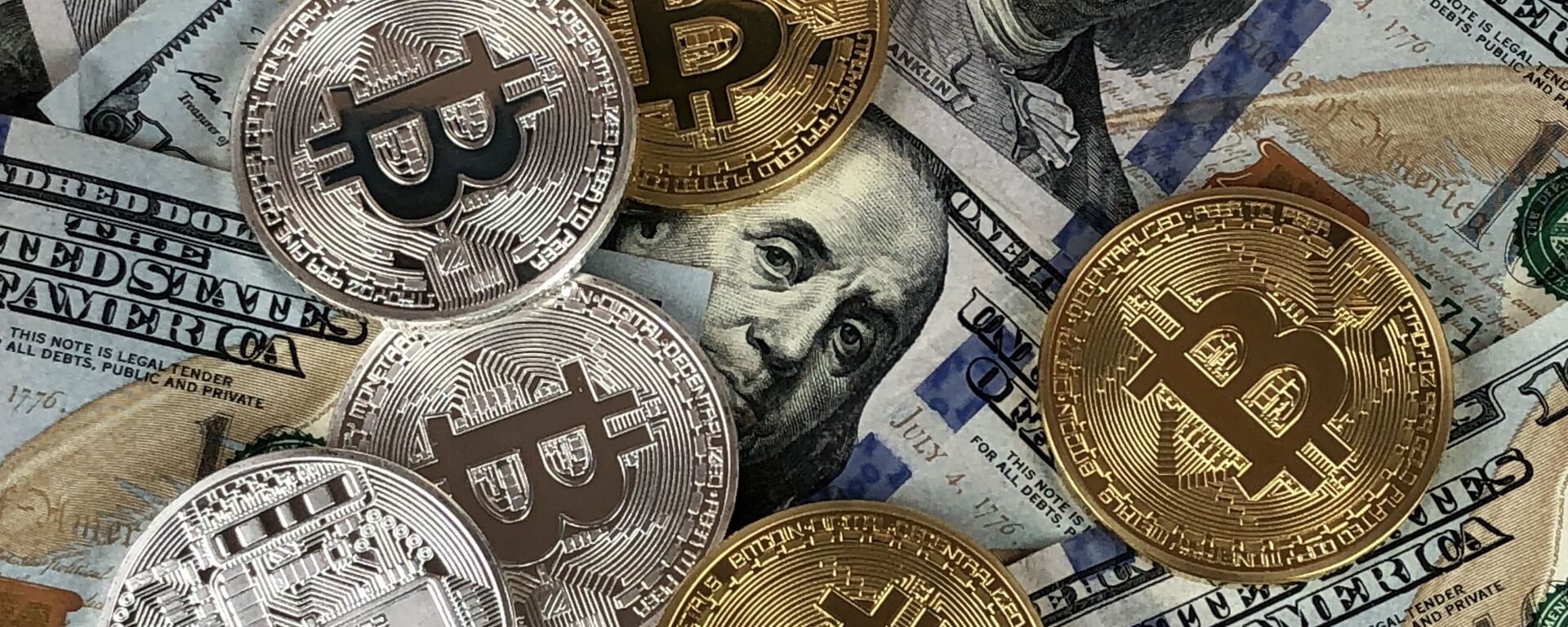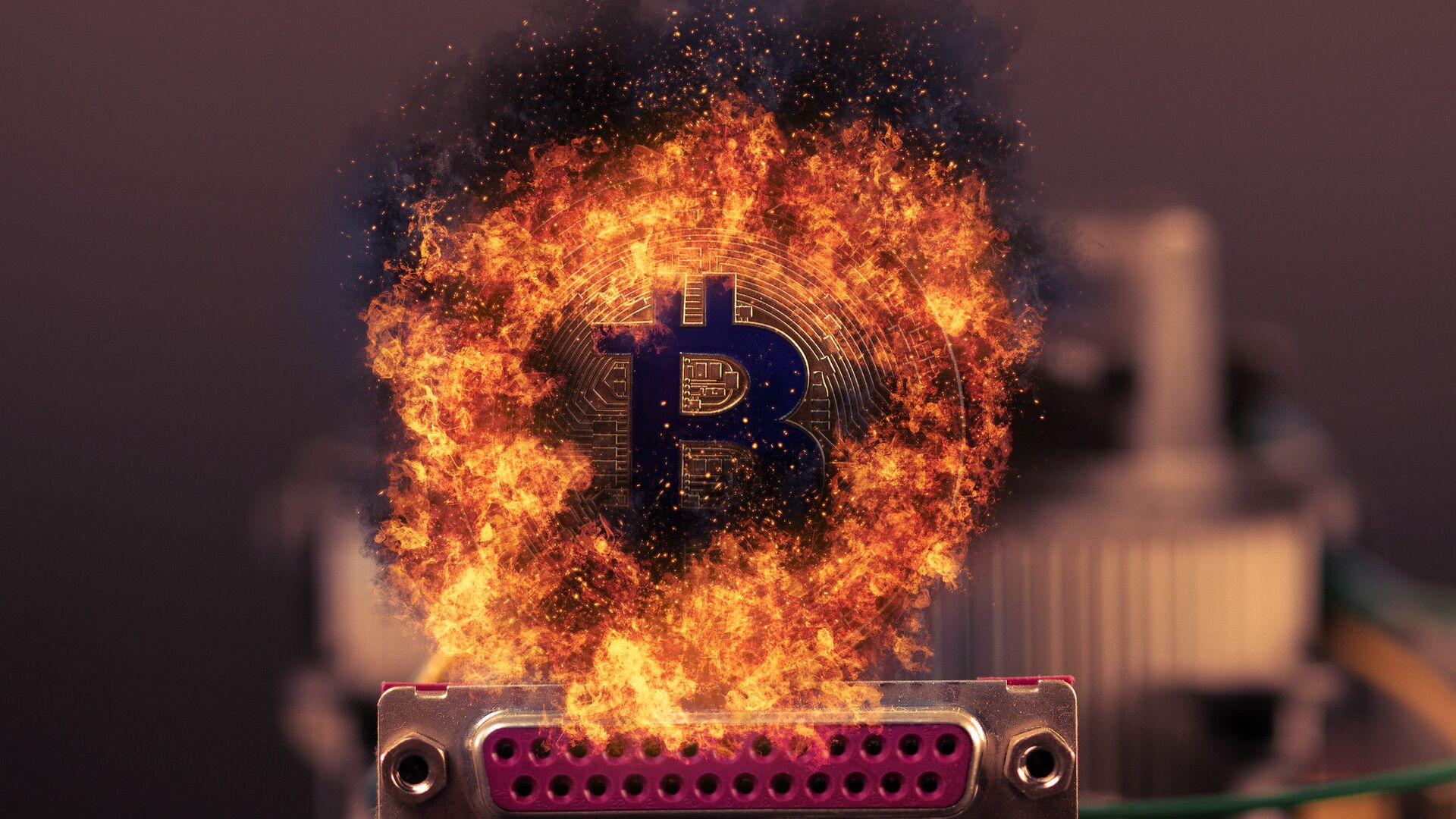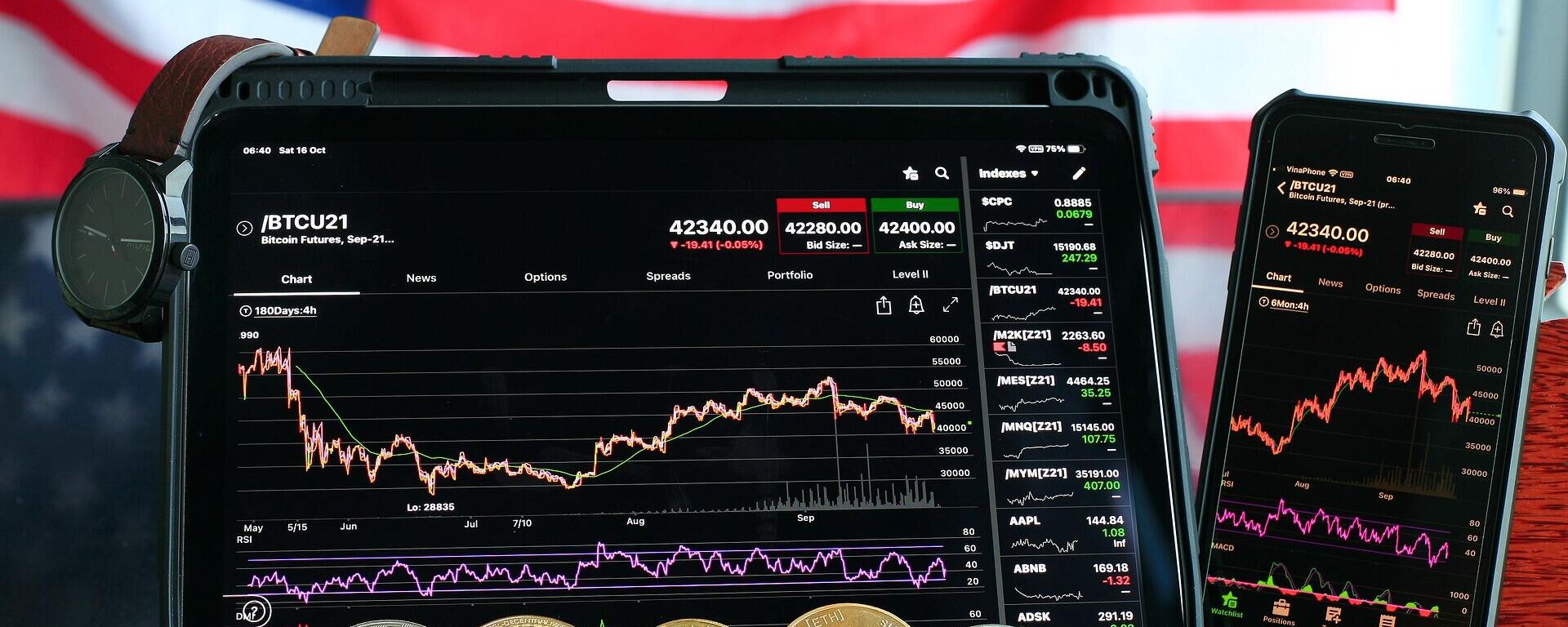https://sputnikglobe.com/20221111/not-your-keys-not-your-coins-ftx-lent-billions-of-customer-funds-in-risky-gambles-1103999265.html
'Not Your Keys, Not Your Coins' FTX Lent Billions of Customer Funds in Risky Gambles
'Not Your Keys, Not Your Coins' FTX Lent Billions of Customer Funds in Risky Gambles
Sputnik International
Cryptocurrency investors are learning the hard way that the cryptocurrency community adage “not your keys, not your coins” is a very important rule to live by... 11.11.2022, Sputnik International
2022-11-11T01:29+0000
2022-11-11T01:29+0000
2022-11-21T14:36+0000
americas
bitcoin
cryptocurrency
sam bankman-fried
ftx
binance
https://cdn1.img.sputnikglobe.com/img/07e5/05/17/1082977498_0:117:2048:1269_1920x0_80_0_0_98cce2d063494cbc66420493635ef028.jpg
Embattled cryptocurrency exchange FTX lent out billions of customer funds to its sister Alameda Research, a person familiar with the situation told American newpaper.FTX was the second-largest cryptocurrency exchange by volume in the world before it halted withdrawals earlier this week after a $5 billion bank run. The company’s majority owner and chief executive Sam Bankman-Fried said in an investors call that Alameda Research, the company’s affiliated trading firm, owes FTX $10 billion.In total, FTX had about $16 billion in assets deposited by customers, meaning that FTX gambled more than 60% of its customers’ funds on risky bets. Bankman-Fried reportedly called the decision a poor judgment call.For a few hours, it appeared FTX might be saved when Bankman-Fried tweeted that FTX and rival cryptocurrency exchange Binance had come to a non-binding agreement for Binance to purchase the site. However, that sale fell through, with Binance lamenting FTX’s issues were “beyond our control or ability to help.”At present, the Securities and Exchange Commission and the Department of Justice are reportedly looking into FTX.In June, Bankman-Fried warned that “some third-tier exchanges … are already secretly insolvent.”Typically, cryptocurrency exchanges make money off of fees they charge for transactions, a practice that provides a steady, reliable source of income regardless of swings in the cryptocurrency market. Bankman-Fried, through his lending of customer assets, took a riskier move: trying to play the swings in the market.The cryptocurrency community’s adage of “not your keys, not your coins” refers to how cryptocurrencies secure funds through the use of private keys.Cryptocurrencies are held in virtual wallets opened through the use of a private key known only by the user. When a transaction is sent, it is signed with a cryptographic hash of the private key that can confirm the validity of the transaction without revealing the key. Private keys are also used for end-to-end encryption, like in messaging apps.Both the upside and downside of private keys are that they endow complete ownership of the wallet to anyone who knows the key. When users store cryptocurrencies on exchanges like FTX, they don’t hold the private keys to those coins, the exchange does. As far as the Blockchain is concerned, those coins do not belong to the customers, they belong to the exchange.Hence, “not your keys, not your coins.”FTX is hardly the first cryptocurrency exchange to fall because of misuse of customer funds. In 2013, the largest bitcoin exchange at the time, Mt.Gox, collapsed after it was unable to process user withdrawals. Hundreds of crypto exchanges, of all sizes, have collapsed since.The issue has led to the rise of “decentralized” exchanges. Those exchanges, like Bitcoin itself, are run on a decentralized network and allow users to hold their private keys while trading. Bankman-Fried often butted heads with proponents of decentralized exchanges, calling on them to be regulated like brokers.Unlike traditional finance, where investors would have been accredited and would be among the first in line for any bankruptcy proceedings, cryptocurrency investors are not considered accredited investors and will be among the last in line to recoup funds in a potential bankruptcy case.Stefan Rust, the former CEO of Bitcoin.com and current CEO of blockchain development house Laguna Labs, believes FTX’s fall is a huge opportunity not just for rival exchange Binance, but also for decentralized exchanges.“The upshot of all of this will be that builders will continue to further decentralize as the community rallies around this theme,” Rust said in remarks made to Sputnik. “The decentralized crypto community is protecting the censorship-resistant, transparent and immutable world of [Decentralized Finance] that is already far more transparent and open than centralized and traditional finance - especially banks.”
https://sputnikglobe.com/20220511/the-cryptocurrency-world-is-in-crisis-this-is-why-1095445269.html
https://sputnikglobe.com/20220916/white-house-cryptocurrency-risks-hurting-us-financial-stability-national-security-1100849133.html
americas
Sputnik International
feedback@sputniknews.com
+74956456601
MIA „Rossiya Segodnya“
2022
News
en_EN
Sputnik International
feedback@sputniknews.com
+74956456601
MIA „Rossiya Segodnya“
Sputnik International
feedback@sputniknews.com
+74956456601
MIA „Rossiya Segodnya“
bitcoin, cryptocurrency, sam bankman-fried, ftx, binance
bitcoin, cryptocurrency, sam bankman-fried, ftx, binance
'Not Your Keys, Not Your Coins' FTX Lent Billions of Customer Funds in Risky Gambles
01:29 GMT 11.11.2022 (Updated: 14:36 GMT 21.11.2022) Cryptocurrency investors are learning the hard way that the cryptocurrency community adage “not your keys, not your coins” is a very important rule to live by when investing.
Embattled cryptocurrency exchange FTX lent out billions of customer funds to its sister Alameda Research, a person familiar with the situation
told American newpaper.
FTX was the second-largest cryptocurrency exchange by volume in the world before it halted withdrawals earlier this week after a $5 billion bank run. The company’s majority owner and chief executive Sam Bankman-Fried said in an investors call that Alameda Research, the company’s affiliated trading firm, owes FTX $10 billion.
In total, FTX had about $16 billion in assets deposited by customers, meaning that FTX gambled more than 60% of its customers’ funds on risky bets. Bankman-Fried reportedly called the decision a poor judgment call.
For a few hours, it appeared FTX might be saved when Bankman-Fried tweeted that FTX and rival cryptocurrency exchange Binance had come to a non-binding agreement for Binance to purchase the site. However, that sale fell through, with Binance lamenting FTX’s issues were “beyond our control or ability to help.”
At present, the Securities and Exchange Commission and the Department of Justice are reportedly looking into FTX.
In June,
Bankman-Fried warned that
“some third-tier exchanges … are already secretly insolvent.”Typically, cryptocurrency exchanges make money off of fees they charge for transactions, a practice that provides a steady, reliable source of income regardless of swings in the cryptocurrency market. Bankman-Fried, through his lending of customer assets, took a riskier move: trying to play the swings in the market.
The cryptocurrency community’s adage of “not your keys, not your coins” refers to how cryptocurrencies secure funds through the use of private keys.
Cryptocurrencies are held in virtual wallets opened through the use of a private key known only by the user. When a transaction is sent, it is signed with a cryptographic hash of the private key that can confirm the validity of the transaction without revealing the key. Private keys are also used for end-to-end encryption, like in messaging apps.
Both the upside and downside of private keys are that they endow complete ownership of the wallet to anyone who knows the key. When users store cryptocurrencies on exchanges like FTX, they don’t hold the private keys to those coins, the exchange does. As far as the Blockchain is concerned, those coins do not belong to the customers, they belong to the exchange.
Hence, “not your keys, not your coins.”
FTX is hardly the first cryptocurrency exchange to fall because of misuse of customer funds. In 2013, the largest bitcoin exchange at the time, Mt.Gox, collapsed after it was unable to process user withdrawals. Hundreds of crypto exchanges, of all sizes, have collapsed since.
The issue has led to the rise of “decentralized” exchanges. Those exchanges, like Bitcoin itself, are run on a decentralized network and allow users to hold their private keys while trading. Bankman-Fried often butted heads with proponents of decentralized exchanges, calling on them to be regulated like brokers.
Unlike traditional finance, where investors would have been accredited and would be among the first in line for any bankruptcy proceedings, cryptocurrency investors are not considered accredited investors and will be among the last in line to recoup funds in a potential bankruptcy case.

16 September 2022, 10:15 GMT
Stefan Rust, the former CEO of Bitcoin.com and current CEO of blockchain development house Laguna Labs, believes FTX’s fall is a huge opportunity not just for rival exchange Binance, but also for decentralized exchanges.
“The upshot of all of this will be that builders will continue to further decentralize as the community rallies around this theme,” Rust said in remarks made to Sputnik.
“The decentralized crypto community is protecting the censorship-resistant, transparent and immutable world of [Decentralized Finance] that is already far more transparent and open than centralized and traditional finance - especially banks.”




